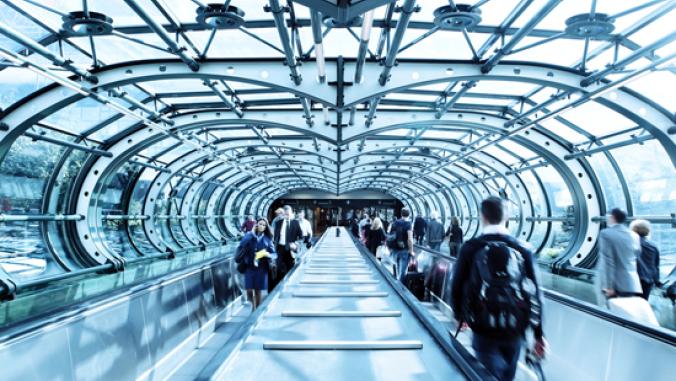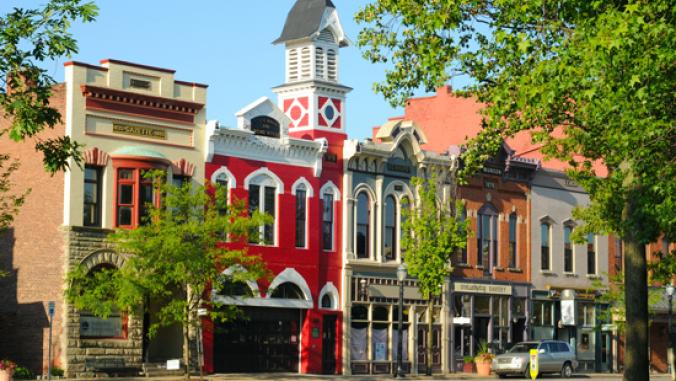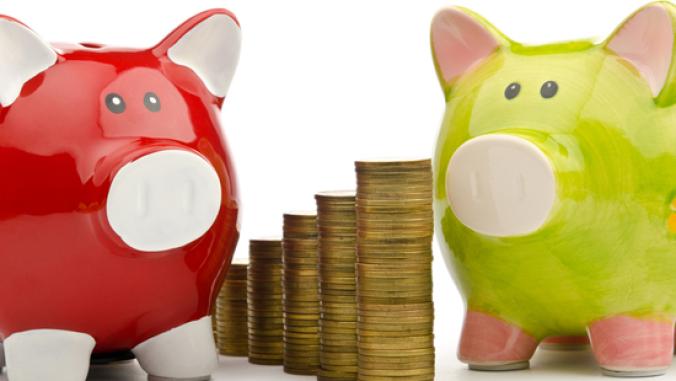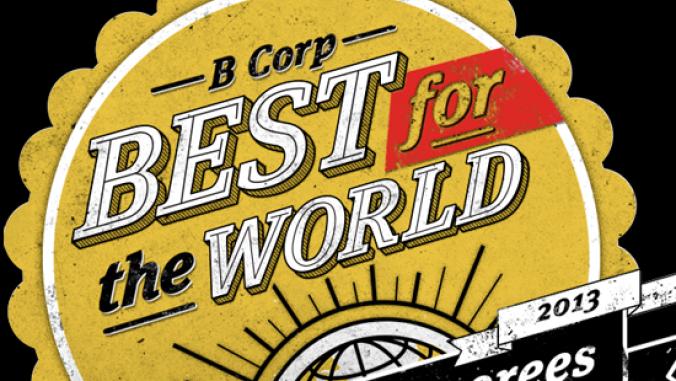ICYMI: BICEP's climate challenge, floating LEED, bad news beers & more
<p>The latest weekly roundup of green news tracks efforts to build green into the budget, the benefits to green communications, and much more.</p>

ICYMI -- "In Case You Missed It" -- is a regular Friday feature recapping the news of the week.
Greetings, readers! We are now in the thick of Earth Month and we're piling up all kinds of interesting and amusing tidbits for a roundup of "news" for Earth Day. If you've come across any great -- or off-the-wall -- promotions tied to Earth Day, or Earth Week, or Earth Fortnight -- let us know in the comments below, or by email.
And with that, let's see what the week's catch looks like:
News and Notable Reports
• EPA nominee on the warm seat: Gina McCarthy faced the Senate on Thursday for her confirmation hearing to take the reins of the EPA. Though the Wall Street Journal and NBC both note the relatively light treatment McCarthy received, the hearing gave senators a chance to air their respective grievances: "the hearing was a chance for Republican senators to complain about the economic impact of EPA regulations, especially on coal producers. It was also a chance for Democratic senators to argue that the costs of air pollution and climate change were the bigger dangers," NBC's Tom Curry writes.
However, Senator Bernie Sanders (I-Vt.), in his opening statement -- following his Republican colleague's opener that invoked the "war on coal" -- that: "This is not a debate about Gina McCarthy. Senator Barrasso made it very clear what this debate is about. It is a debate about global warming, and whether or not we are going to listen to the leading scientists of this country."
• Businesses raise a climate challenge: Even as Washington continued its snail's-pace movement on environmental issues, a group of 33 major U.S. corporations on Wednesday issued a climate challenge to President Obama. Nike, eBay, IKEA, Jones Lang LaSalle, The North Face, and many other firms released a Climate Declaration that aims to send a clear message to Washington: "Act on climate change. We are, and it's good for our businesses." The Declaration was coordinated by BICEP and Ceres, and Ceres president Mindy Lubber published an op-ed on Tuesday highlighting the huge costs we're already incurring from climate change, through crop losses, fires and floods, and huge taxpayer risks from weather disasters like Hurricane Sandy.
• Are you a sustainability purist? Verdantix this week released a new report showing the benefits to companies that closely tie their sustainability efforts to their marketing and branding initiatives. After surveying 80 firms' communications strategies, Verdantix identifies five strategies that define the strategies of most companies:
- For Purists, sustainability is "synonymous" with the brand;
- for Explorers, sustainability is tightly entwined;
- for advocates, sustainability communications are regularly issued, but remain in a silo;
- for Reactionists, sustainability communications happen only in a crisis;
- and for Nothingists, there is no discussion of sustainability at all.
• While there are relatively few Nothingists among the world's largest corporations, the huge mass of medium-sized companies is an entirely different story. Business4Better this week released the results of a survey of 173 medium-sized companies' sustainability efforts, and found that about two-thirds of companies have already begun or are planning to begin a dedicated CSR program. And although only 20 percent tie measure their CSR efforts' success based on financial impacts, 50 percent of respondents said their C-Suite was in charge of corporate sustainability.
Green Cities
• Copenhagen's carbon neutral goal: By 2025, the Danish capital plans to be a zero-carbon city, by replacing coal with biomass and installing more renewable energy, maximizing buildings' energy efficiency, and getting even more residents to ride bikes and public transit.
• Chicago adds "greenest street" to its credentials: The Windy City has long been a bastion of green buildings, but according to this article from AFP, Chicago is also host to the world's greenest street, one that includes smog-eating pavement, solar- and wind-powered streetlights, and bioswales to minimize stormwater runoff.
• This is not exactly a green city story, but where else would it go? The Cottonwood Cove Resort and Marina on Lake Mohave in Nevada has achieved the latest, most out-there "first" in the realm of LEED certification (a realm that sees many "firsts" that are questionable at best in their noteworthiness, e.g. the first LEED Ford dealership in Illinois, or the first LEED Silver condominium and hotel in Seattle): Cottonwood will be the first floating building to earn LEED certification. The resort earned LEED Gold by incorporating rice hulls into its decking, using recycled tires for its exterior stucco, and many of the regular fixins that go into a deep-green building.
Odds 'n' Sods
• More heavy news for rice: Rice imported Asia, Europe and South America can contain 20 to 40 times more lead than the FDA recommended exposure levels for adults. Because rice is grown using large amounts of water, it's more likely to be contaminated by polluted water than other crops. The bad news is that this comes on the heels of the discovery of arsenic in rice early last year. The good news is that imported rice makes up just about 7 percent of the U.S.'s rice intake -- and the researchers haven't yet studied domestically grown rice.
• Arsenic, arsenic everywhere? Speaking of arsenic, a researcher in Munich made a splash this week when he reported that 360 samples of beer he tested contained trace amounts of arsenic. The source is likely the diatomaceous earth used to filter cloudy beers (and wines) to make them clear, and the amounts found in any of the beers are not enough to pose a health risk. The news comes at the same time that the NRDC announced a new partnership with craft brewers to promote clean water and defend the Clean Water Act.
• Mosaic pieces together another victory: We've written plenty about the innovative solar startup Mosaic, which offers a crowdsourced investment model for rooftop solar installations. The company racked up another win this week when its latest investment project sold out almost immediately. The project, a 114-kilowatt array on the roof of the Ronald McDonald House in San Diego, reached $157,750 in funding in just six hours.
• Drones for good: A fascinating story published on Ensia this week: A university researcher has pioneered the use of eco-drones, unmanned aircraft that can be used to map ecosystems, track conservation efforts, or check in on otherwise off-limits oil spills. The possibilities are endless!
• Good news on U.S. emissions: The Energy Information Administration this week released the energy-related emissions in the U.S. and found 2012 levels to be the lowest since 1992. The reasons, ironically enough, include a "mild winter" (read: global warming), low natural gas prices (read: fracking), and reduced gasoline demand (read: economic slowdown). Good news comes in strange packages.
Speaking of which, a powerful windstorm that swept Southern California last weekend also resulted in record levels of wind-power generation. The winds, which gusted as fast as 70 miles per hour, helped turbines create 4,196 megawatts of power -- enough to power more than 3.1 million homes at once.





